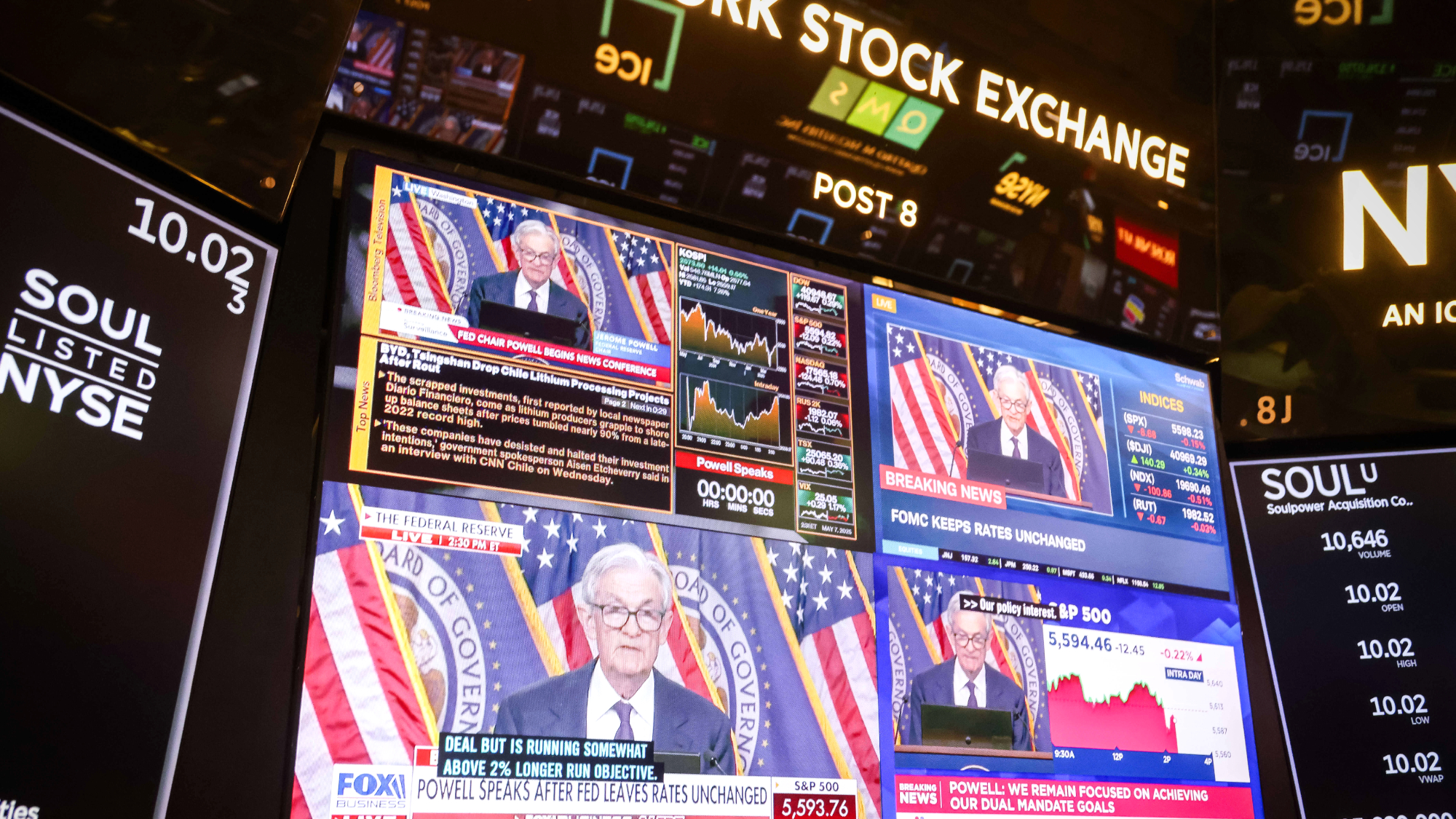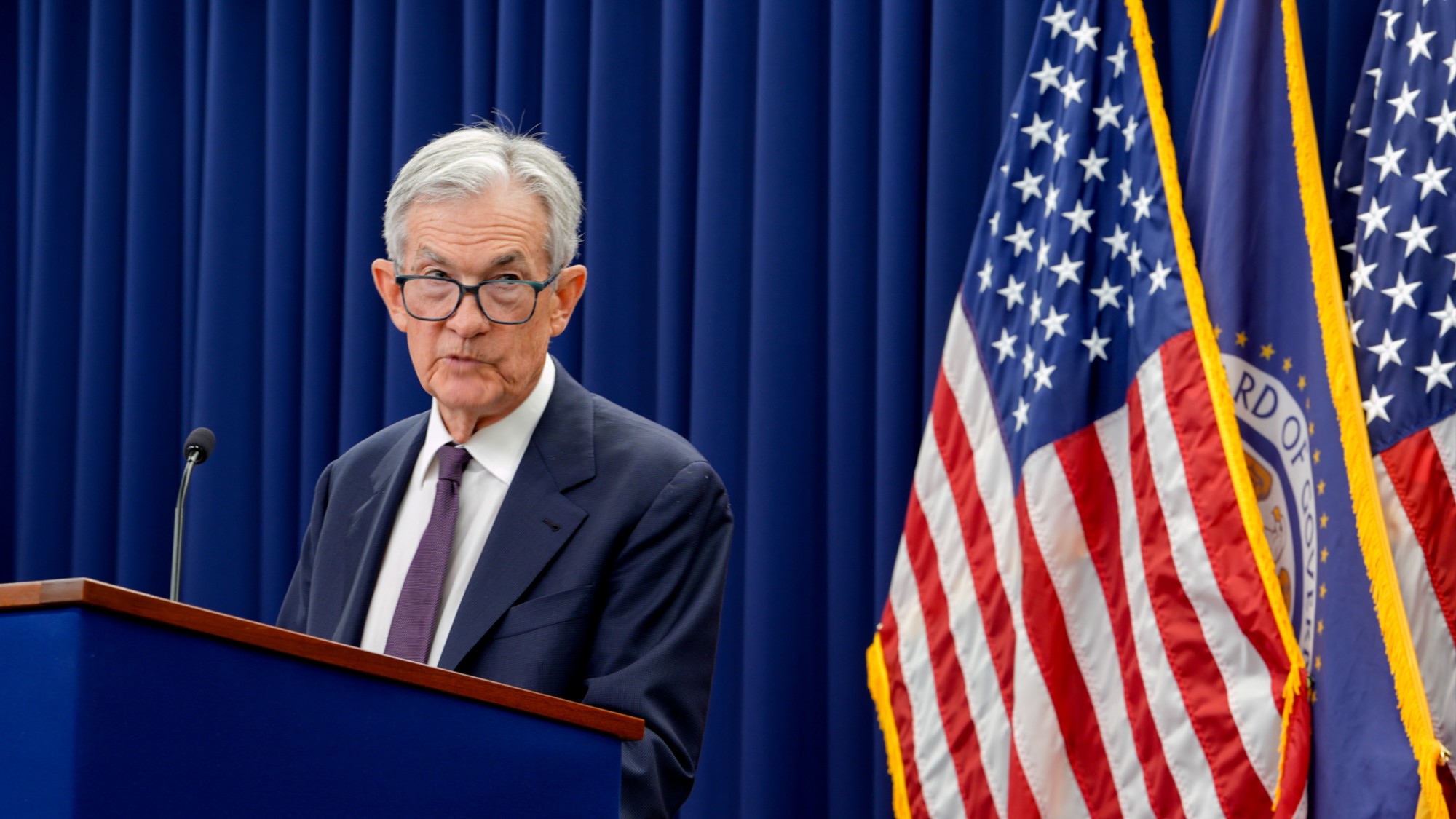Fed leaves rates unchanged as Powell warns on tariffs
The Federal Reserve says the risks of higher inflation and unemployment are increasing under Trump's tariffs


A free daily email with the biggest news stories of the day – and the best features from TheWeek.com
You are now subscribed
Your newsletter sign-up was successful
What happened
The Federal Reserve voted unanimously Wednesday to keep interest rates unchanged, disregarding President Donald Trump's demands for lower borrowing costs as his global trade war roils the U.S. and global economies.
Who said what
Trump's "large increases in tariffs," if "sustained," are "likely to generate a rise in inflation, a slowdown in economic growth and a rise in unemployment," Fed Chair Jerome Powell said at an afternoon press conference. But "the scope, the scale, the persistence of those effects are very, very uncertain." The "unusual" combination of "higher prices and more unemployment" is "often referred to as 'stagflation,'" The Associated Press said, and it "strikes fear in the hearts of central bankers."
If unemployment rises, the Fed can cut rates, while rising inflation is usually countered by raising borrowing costs. Powell's comments were his "subtle way of saying the U.S. central bank" was "effectively sidelined until Trump's sweeping policy agenda takes full effect," Reuters said. He "used some version of the word 'wait' 22 times to underscore how the Fed isn't in a rush" to "cushion economic weakness" from Trump's tariffs, The Wall Street Journal said.
The Week
Escape your echo chamber. Get the facts behind the news, plus analysis from multiple perspectives.

Sign up for The Week's Free Newsletters
From our morning news briefing to a weekly Good News Newsletter, get the best of The Week delivered directly to your inbox.
From our morning news briefing to a weekly Good News Newsletter, get the best of The Week delivered directly to your inbox.
What next?
"We're all kind of waiting around expecting a slowdown in the economy," William English, a Yale business professor and former Fed adviser, told the Journal, but the "hard data" is not showing it yet. "We're in a good position to wait and see," Powell said, and "respond in a timely way" when the data arrives.
A free daily email with the biggest news stories of the day – and the best features from TheWeek.com
Rafi Schwartz has worked as a politics writer at The Week since 2022, where he covers elections, Congress and the White House. He was previously a contributing writer with Mic focusing largely on politics, a senior writer with Splinter News, a staff writer for Fusion's news lab, and the managing editor of Heeb Magazine, a Jewish life and culture publication. Rafi's work has appeared in Rolling Stone, GOOD and The Forward, among others.
-
 The world’s most romantic hotels
The world’s most romantic hotelsThe Week Recommends Treetop hideaways, secluded villas and a woodland cabin – perfect settings for Valentine’s Day
-
 Democrats push for ICE accountability
Democrats push for ICE accountabilityFeature U.S. citizens shot and violently detained by immigration agents testify at Capitol Hill hearing
-
 The price of sporting glory
The price of sporting gloryFeature The Milan-Cortina Winter Olympics kicked off this week. Will Italy regret playing host?
-
 Japan’s Takaichi cements power with snap election win
Japan’s Takaichi cements power with snap election winSpeed Read President Donald Trump congratulated the conservative prime minister
-
 Trump sues IRS for $10B over tax record leaks
Trump sues IRS for $10B over tax record leaksSpeed Read The president is claiming ‘reputational and financial harm’ from leaks of his tax information between 2018 and 2020
-
 Trump, Senate Democrats reach DHS funding deal
Trump, Senate Democrats reach DHS funding dealSpeed Read The deal will fund most of the government through September and the Department of Homeland Security for two weeks
-
 Fed holds rates steady, bucking Trump pressure
Fed holds rates steady, bucking Trump pressureSpeed Read The Federal Reserve voted to keep its benchmark interest rate unchanged
-
 Judge slams ICE violations amid growing backlash
Judge slams ICE violations amid growing backlashSpeed Read ‘ICE is not a law unto itself,’ said a federal judge after the agency violated at least 96 court orders
-
 Rep. Ilhan Omar attacked with unknown liquid
Rep. Ilhan Omar attacked with unknown liquidSpeed Read This ‘small agitator isn’t going to intimidate me from doing my work’
-
 Democrats pledge Noem impeachment if not fired
Democrats pledge Noem impeachment if not firedSpeed Read Trump is publicly defending the Homeland Security secretary
-
 Can Starmer continue to walk the Trump tightrope?
Can Starmer continue to walk the Trump tightrope?Today's Big Question PM condemns US tariff threat but is less confrontational than some European allies
